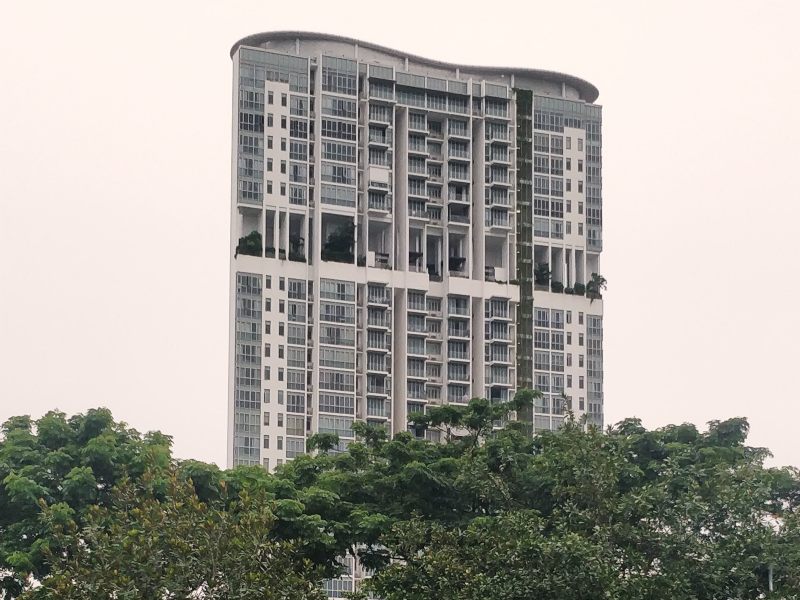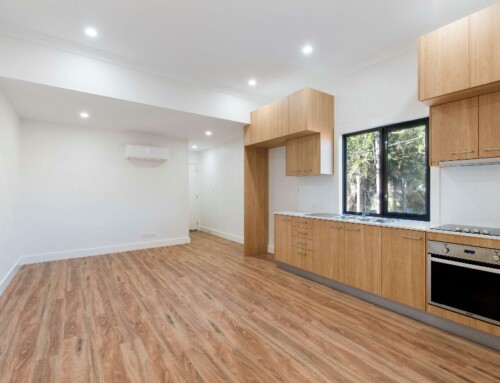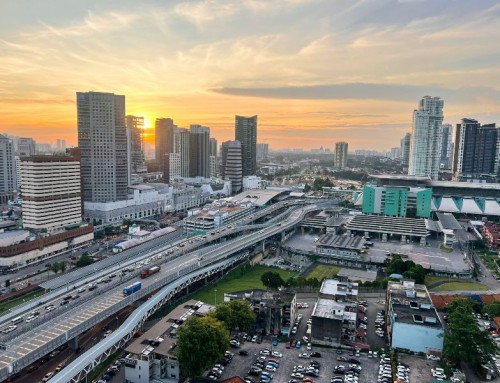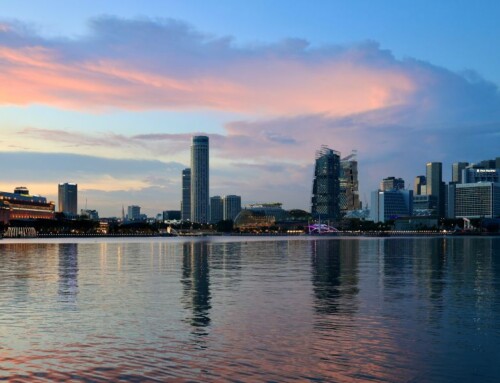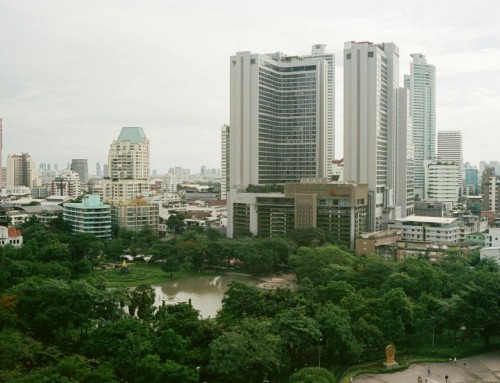Singapore is not immune to recessions. We are on the brink of a technical recession. A technical recession is defined as two consecutive quarters of economic contractions. As the health of the economy is determined by Gross Domestic Product (GDP) numbers, this would mean that a contraction in such numbers for two quarters would fulfil the definition of a technical recession. However, as Singaporeans would already realise, the health of the economy does not always commensurate to what is happening on the ground. Just last month we received the news that new private home sales jumped 80% in April. Analysts commented that the cooling measures were unlikely to impact local buyers. There was little concern among property analysts that there might be a technical recession might be looming. It seemed to be that property demand and correspondingly property prices were driven by the expectation that prices would continue to rise. While there were discussions over the impact that the additional buyers stamp duties (ABSD) would have on the demand from the various groups of buyers, there was little mention about future supply. There was also little to no mention in most analysts’ comments about a possible technical recession affecting buying sentiment and hence reducing demand. This should perplex most who have studied economics. Was a technical recession not one that should adversely affect demand for such big-ticket purchases as homes? Singapore is perhaps one of the most expensive places to purchase property. The property loans that go with such a purchase are usually extremely long-term commitments which can span tenures of more than 20 years.
So why the prolonged, sustained buying frenzy?
For starters, we will need to be aware that Singapore is a highly open economy. One that is a price taker when it comes to interest rates. We import and export a large amount of goods and services and hence the policies of central banks around the world usually have a direct impact on our local economy. This is none more so when we consider the US Federal Reserve (The Fed).
So what does The Fed do? What powers does it have?
While the US Federal Reserve has been around for much longer, its current mandate was only formed in the 1970s. The Fed’s dual mandate states that it had to pursue full employment with stable prices as well as moderating interest rates. These are conflicting mandates and the conundrum that it is in currently supports this description. In periods of full employment, prices will increase. This means that the economy is doing extremely well and hence prices will rise. To pursue full employment, interest rates need to be low as this would encourage investment. Think of it as if home interest rates were at say 1%, buyers would think of this as cheap and it would be a push to enter the property market. Similarly, interest rates would be low for companies. This would result in companies increasing hiring, investment in machinery, etc… In such cases, the economy would be overheating. Workers would be doing well, pay increases would be common, and property prices would continue to rise because the demand for property should correspondingly rise if supply does not match up with demand.
So then what should The Fed do when faced with such a situation? The economy is overheating and hence it should moderate interest rates. Raise interest rates to a point where investment demand slows. This will cause companies to cut back on spending and consequently, hiring. Full employment is difficult, if not impossible, with high-interest rates. This dichotomy presents The Fed with a paradoxical situation with its dual mandate. Yet we study the actions of The Fed in our universities as though it were gospel truth. It is exactly because of this conflicting dual mandate which is allowing inflation to run riot. The tools to deal with inflation are in direct conflict with one of the dual mandates.
So where does this leave us then?
As mentioned earlier, Singapore is in a position where we take the lead from larger economies. In fact, interest rate increases from The Fed have an almost direct impact on our local interest rates. Consumer interest rates like home loan rates have been rising together with The Fed’s increases over the past year or so. From a low of about 1%, our home loan rates have climbed to around 4%. Rates should be projected to rise further, albeit at a slower pace.
The Fed is independent. Yet the state of the US economy is usually a point of contention in every election. Election campaigns in the US are usually centred on how the economy is doing. While in the past it was always about having full employment, this time round inflation should be a hot topic. High inflation erodes the purchasing power of the typical American consumer. Hence, interest rate increases are to help ease inflationary pressures. Inflation has slowly but surely also eroded investment returns, not just in the US but in Singapore as well. While it is true that one will need to sell his or her property to realise a profit, in most cases, this profit is quickly used to repurchase another property. Singapore has been enjoying more than a decade of extremely low-interest rates since the 2008 Global Financial Crisis. The calamitous nature of that financial crisis gave rise to over a decade of “cheap” money. This period encompassed a generation of new workers, fresh after graduation, a group of workers that have never seen Singapore battle a poor job market. For some of those who have, periods of high unemployment seem to be in their distant memory.
An increase in interest rate should have corresponded with rounds of ABSD. However, if local banks were to implement higher interest rates, they would not be competitive as compared to foreign banks and hence consumers and companies in Singapore could simply obtain cheaper funding from abroad. The Monetary Authority of Singapore controls inflation through the exchange rate of the Singapore dollar, not through interest rates. All that could be done was to increase the price of the property by levying more taxes. After multiple rounds of ABSD, it would be safe to say that the property market had continued on a path that had not been anticipated. While the multiple rounds of ABSD were lauded for slowing down the rate of increase in property prices, it is also arguable that after the initial few rounds of increases in ABSD, subsequent increases would have been a sign to some buyers to make their purchases before another increase. This is especially when it is reported in the media that the recent increases to the ABSD have not been able to cool the property market.
So now we are left with a situation where new home sales in the month following the ABSD increase are at a 1-year high. It would seem that this latest round of ABSD increase would be similar to the previous rounds. My take on this would be that so long as Singapore is as open an economy as it is currently as coupled with the fact that it uses the exchange rate rather than interest rates to battle inflation, it will always be at the mercy of what The Fed does. In times when our property market was on a sustained bull run, interest rates were kept low. However, we must realise that the current dual mandate of The Fed is relatively recent. Personally, I have always believed that this dichotomy is unsustainable from a principled standpoint. The populist approach in the US would be to lean towards full employment as this helps win elections. Over multiple election terms, rates were kept extremely low and this has fueled the stubbornly high inflation that the US is facing. The only way out, seemingly, would be to force the economy into a period of correction by raising interest rates to dampen expansionary pressures.
Hence, if I were bold enough to suggest, a recession is actually necessary and just around the corner. For property buyers in Singapore, my guess is as good as anyone. Property analysts are people who have the benefit of hindsight and comment on what has already happened. They do not have to guarantee that the predictions that they make on the state of the market in the near or distant future will come true. One thing is certain, buyers need to be prudent in their purchases. It cannot be a case where the purchase is spurred by the fear of prices rising even further. It has to be grounded in fundamentals. Buyers need to revert back to looking at rental yields and even whether the rental collected can cover the monthly mortgage instalments. The current turning point, in my humble opinion, is when rental rates start to recede. The shortage in supply of units created by the pandemic will start to ease as the government ramps up supply. This is further exacerbated by policy changes which pushed demand for rents further north.
I have always understood property just like any other investment. Through its intrinsic value and considering whether I could holdout in a downturn. I still hold true to the principles I laid out in my previous article: Understanding property from an economics perspective.
Yours sincerely,
